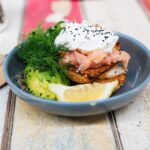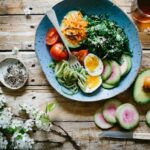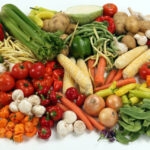Busting Food Myths with Nicole Senior
Myth: When it comes to food, fresh is always best.
![[NICOLE]](https://glycemicindex.com/blog/2007/dec2007/nicole125.jpg)
Nicole Senior
Fact: Fresh food is great but our lifestyles no longer permit eating only fresh food.
‘Processed’ food can make a significant contribution toward health, convenience and enjoyment. I get a bit annoyed at those holier-than-thou health nutters who say we should avoid all ‘processed’ foods. It sounds great – indeed virtuous – but in reality it’s both impractical and undesirable for regular folk who are busy trying to keep work, home and family ticking over.
The term ‘processed’ itself is nutritionally meaningless without qualifiers like ‘highly’ or ‘overly’ or even ‘minimally’ as just about all foods we buy are processed in one way or another – just think of basics like low fat milk, grainy bread, traditional porridge oats, rice and pasta.
There’s also a good reason why food technology has made leaps and bounds; we demanded it. I’m not saying all technological advances have been used to promote health, but on balance it’s been a great leap forward for society. Processed food is the price we pay for the life we desire, and we can’t go back. To support a global population of 9 billion – mostly urbanised – people by 2050 we’re going to need more technology to help feed the world, not less.
We now spend less time on shopping and preparing food. We demanded this because women moved out of the kitchen and into the workforce. Unfortunately men (generally speaking) haven’t assumed their share of the domestic tasks – including cooking – and the food industry has picked up the slack. It now takes 30 minutes rather than 3 hours to whip up spaghetti Bolognese using dried pasta, frozen mince, a bottled sauce and some bagged salad; an incredible feat of modern food technology when you think about it. The same meal could take a day to prepare from scratch (plus the toil of preserving the previous summer’s tomato crop). While many people moan about supermarkets, they now give us everything we could want (and lots we shouldn’t want) all under the one roof. Easy.
Processing food allows us to enjoy food from around the world. Could you imagine only being able to eat fresh food from your local area? And then having to preserve what you couldn’t consume in a few days? Buying local where you can is a great thing, but the 100-mile diet is unrealistic for most people. Australia, the USA, Canada and the UK are cultural melting pots and processed foods allow migrants to enjoy the tastes of home and the rest of us to expand our culinary horizons. International trade in food supports many developing countries as well as developed ones.
Food technology and food additives reduce food waste by prolonging shelf life and preserving seasonal produce. While there are some unfortunate individuals who are sensitive to certain food additives, their benefits are still worth it for society at large (and clear labelling allows avoidance if necessary). We forget about the untold millions of lives saved due to preservatives stopping the growth of deadly bacteria. The huge consumer concern about food additives is disproportionate to the actual evidence of harm. They undergo safety testing before they are permitted in foods and there has never been a single reported death attributed to a food additive. On the other hand, eating too much salt is a contributing factor in millions of deaths globally but it doesn’t attract the same antipathy as additives because it doesn’t need a code number. We have very high standards for the food we buy but fail to recognise the role of additives in producing its desired safety, colour, texture and flavour.
I applaud taking more time to buy quality, fresh, local produce and preparing it at home with love and care because this brings a range of health, environmental and social benefits; just don’t throw the baby out with the bathwater. I’d rather be choosing from the wonderful diversity of fresh and healthier processed foods than wearing an apron 24/7. I think I’ll treat myself tonight with some low fat (and low GI) vanilla ice cream, raspberries (from the freezer) and dark chocolate shavings, followed by a decaf coffee. Try making those from scratch …
Declaration of interest: Nicole provides nutrition consultancy services to food companies as well as the media, the organic food industry and health and community organisations. She has not worked for any companies that manufacture or market food additives.
For more real-world advice about eating for a healthy heart, check out Nicole’s website HERE.







